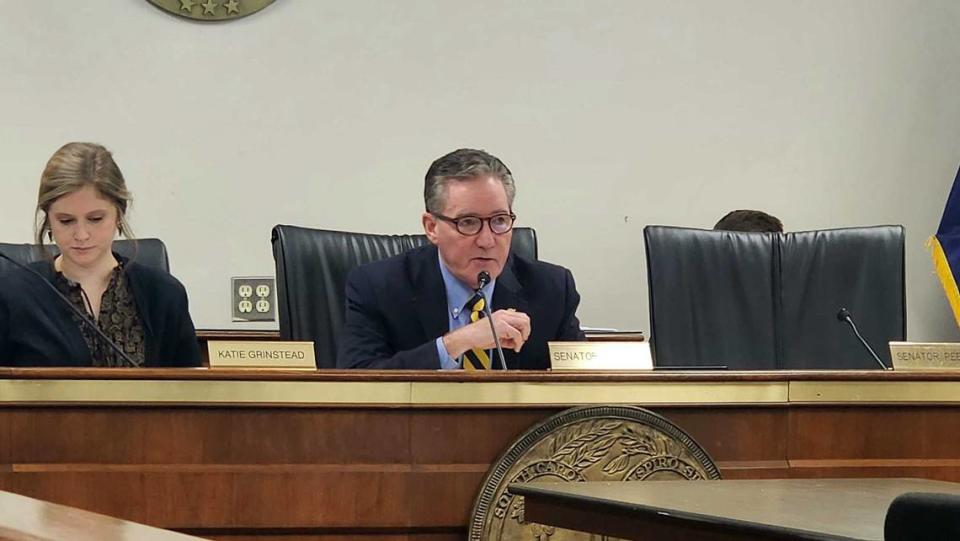New literacy requirements for K-3 students, teachers on horizon amid years-long crisis
Roughly one in two third-grade students are not reading on grade level, according to the South Carolina Department of Education. Those students are in danger of being left back beginning in 2025 under a stringent proposal being weighed by lawmakers.
Public school teachers in South Carolina are also facing potentially significant reforms to improve the state’s dismal literacy rates among elementary students in grades K-3.
An in-depth measure, dubbed “Read to Succeed,” is the latest effort by lawmakers to address the number of elementary students who lack proficiency in reading in the Palmetto State. The bill, S. 905, would require teachers to follow a strict “comprehensive and systemic approach” in helping students achieve fundamental literacy skills. It would also mandate that students not reading on grade level by the third grade be left back, notwithstanding several exemptions.
The bill cleared a Senate education subcommittee Wednesday.
Nearly “50% of third graders are not reading a grade level,” said the chair of the Senate education subcommittee and lead sponsor of the bill. “I look at where we are and what we’ve achieved (in literacy proficiency), and personally, I feel like we’ve failed. We can’t continue doing what we’ve been doing.”

The proposal mandates teachers follow an instructional approach known as the “science of reading,” which involves evidence-based teaching practices, supported by neurological research, aimed at effectively teaching students fundamental reading and comprehension skills, according to the SCDOE.
Education department officials say research relating to “science of reading” shows its implementation would result in 95% of students achieving grade-level proficiency. The remaining 5%, they say, would mostly include students with a learning disability.
S. 905 mirrors Mississippi’s Literacy-Based Promotion Act, which passed in 2013, requiring all K-3 public school teachers to undergo intensive literacy training known as Language Essentials for Teaching Reading and Spelling, or LETRS, to uniformly align educators with the “science of reading.”
Last year, the Boston University’s Wheelcok Educational Policy Center issued a report, finding that Mississippi’s policy resulted in students who were retained in the third grade in 2014-15, have substantially higher ELA scores by the sixth grade. The report also found Black and Hispanic students benefited most from this policy.
“Students in classrooms where LETRS learning has been implemented, are provided with direct, systematic and explicit instruction on foundational literacy skills,” said Abbey Duggins, director of the office of early learning and literacy for the South Carolina Department of Education. “This type of instruction is proactive, in which all students are given the opportunity to develop as proficient readers.”
To measure a student’s proficiency in reading, each school district would be required to administer a literacy assessment three times every school year. Following each test, the district must notify parents regarding their student’s performance and the risk for grade retention.
Students who fail to demonstrate proficiency by the third grade would be held back, beginning with the 2025-26 school year. There are limited exceptions for “good cause,” including students with limited English proficiency and less than two years of instruction in English as a second language program; students with disabilities under a specialized individual education reading plan; or students who demonstrate reading proficiency after successfully completing a summer reading camp following third grade.
The approach has shown promise in at least one school in the Upstate.
In 2019, Westcliffee Elementary in Greenville was one of 265 schools in the state where more than a 30% of its third graders were reading below grade level, according to a report by the education news outlet, The 74.
Following two years of training in the “science of reading” by teachers at Westcliffee, the school observed a dramatic improvement: 75% of third graders were reading on grade level, The 74 reported.
But in recognizing that teachers, and not legislators, are best suited to determine the methods used to instruct their students in reading, state Sen. Darrell Jackson said S. 905 was “heavy handed.”
“I will guarantee you, if there was something coming from the feds that would mandate S.C. to take a particular approach (to education) without any other options, we would plant the flag (and resist).”
Still, not a single teacher spoke for or against the bill before the subcommittee. Some, however, have expressed resistance to the intensive, multi-unit, LETRS training, according to Duggins.
“I think there are challenges (with LETRS) because starting anything new could be scary,” Duggins said. “The first two units in LETRS, in particular, are pretty tough ... so, teachers are hesitant, but once they get through those first two units, we hear overwhelmingly that they really start to see connections to their classroom practice.”
In an op-ed recently published by The State, Paul Thomas, an education professor at Furman University and longtime literacy educator, said implementing “Read to Succeed” is the wrong approach and points to South Carolina’s “revolving door” of failed education reforms.
“South Carolina has been targeting reading for a decade through “Read to Succeed,” and yet, we find ourselves still mired in a reading crisis,” Thomas wrote. “Let’s instead look at the evidence around us to close the gap. This “science of reading” fad is a repeat of the Common Core era of new standards and new teaching and learning materials — a cycle of reform that never achieves what is promised.”

